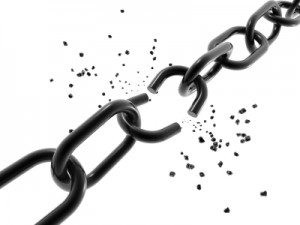Pornography: Dispelling the Myths (A Christian Counseling Approach)
Christian Counselor Seattle
Addressing the Lies Men Tell Themselves to Justify Their Use of Pornography
Unfortunately, what feels good in the moment can have damaging and lasting effects. – Eric Gomez, MS, LMFT, MHP
Rationalizations
Have you ever felt such a strong need for something you were willing to rationalize obtaining it even though you knew it wasn’t the best thing for you? I think of individuals who have spent thousands of dollars on credit cards buying things they felt they needed in the moment, only to find themselves deeply in debt, and wondering if they will ever be free from such a heavy financial burden. This illustration speaks to the power of our ability to convince ourselves to do what feels good in the moment.
Unfortunately, what feels good in the moment can damaging and lasting effects. Consider situations where men and women have had sex with someone they didn’t know very well because the moment “felt right,” and they contracted an incurable STD as result. Rationalizing the need to view pornography can be just as easy and also lead to severe consequences in one’s life.
Justifications
Dr. William Struthers, in his book Wired for Intimacy (2009), lists nine rationalizations men may use to justify their use of pornography:
1. Entitlement: “I’ve earned this.” Men may feel they deserve some sort of special treatment, that they should be given special permission to have this one outlet, and that they are exempt from the same moral standards as others.
2. Omniscience: “I know what you are thinking.” This is where a man assumes he knows the motives of those trying to help him (e.g., “My wife is just trying to control me.”), and thereby absolves himself of his inappropriate behavior.
3. Altruism: “I am keeping it quiet to protect others.” A man using this rationalization believes his secrecy is beneficial because it protects those he loves from the emotional pain of discovering his use of pornography.
4. Deception: “Nope, not me.” Deception is characterized by stating falsehoods, telling partial truths, or remaining silent. Men who utilize deception, unfortunately, deceive themselves regarding the severity and frequency of their use, and may not see their world is falling apart.
5. Blaming / Victimization: “It’s her fault.” Some men may blame others for their use of pornography, rather than accept responsibility for their actions.
6. Pride: “I am right, you are wrong.” A man may be so wrapped up in being right, he isn’t able to admit his actions are wrong.
7. Objectification: “They’re just models.” Pornography thrives on the objectification of other human beings. Men who use pornography tend to have difficulty seeing those they are viewing as anything more than objects.
8. Distraction: “I’ve been really stressed lately.” In some cases, men may shift the focus of their use onto something else. In their minds, the real issue may not be pornography but some other factor like work or family related stress.
9. Revenge: “This’ll show her/him.” This is where some men may view pornography as a way to wound someone (Struthers, 2009).
Dealing with the Consequences
Developing the habit of viewing pornography and using the rationalizations listed above doesn’t take long. Dealing with the consequences of viewing pornography is substantially different. Facing the destructive effects of pornography in one’s life is an ongoing process that requires a substantial amount of time, thought, and effort. I’ve worked with men at various stages in their use of pornography and have seen some recover more quickly than others, but either way, the damage done to their lives is significant. The core of who they are is affected spiritually, emotionally, and relationally.
There is simply no positive basis for men use porn. I know what our secular society says about viewing pornography, and frankly I’m not convinced. My clinical work with men dealing with pornography stands sharply against such secular notions such as:
- It can help improve your sex life.
- It can be educational.
- It doesn’t harm marriages.
- It doesn’t involve the exploitation of men and women.
My experience has shown me these excuses aren’t even debatable because they are such a far cry from the reality of what pornography actually does.
Let’s be honest, why would the purveyors of porn tell you anything different? They’re thriving in what has become a billion-dollar industry. Yet, the lives of individuals and couples I meet with on a regular basis unwaveringly dispute these claims. I am wholly convinced about the negative consequences of pornography and will do everything I can to help men break free, and remain free from them.
Overcoming the Bonds of Pornography
There are powerful resources available to help men break free from the grasp of pornography. As a therapist who has helped men heal from the damage pornography has done to their lives, I would be glad to serve as a resource for you and your family as you seek to do the same. I feel it is necessary to also state that this type of recovery isn’t something you have to do on your own. I want you to know God knows what you have done, but He also is ready to join with you in moving towards a life filled with strength, peace, joy and true masculinity.
To obtain more information on how to arrange a clinical consultation, please visit seattlechristiancounseling.com.
References
Struthers, W. M. (2009). Wired for intimacy: How pornography hijacks the male brain. Downers Grove, IL: InterVarsity Press
Photos
freedigitalphotos.net – Sad woman sitting alone in room by FrameAngel and Chain with a broken link by David Castillo Dominici





